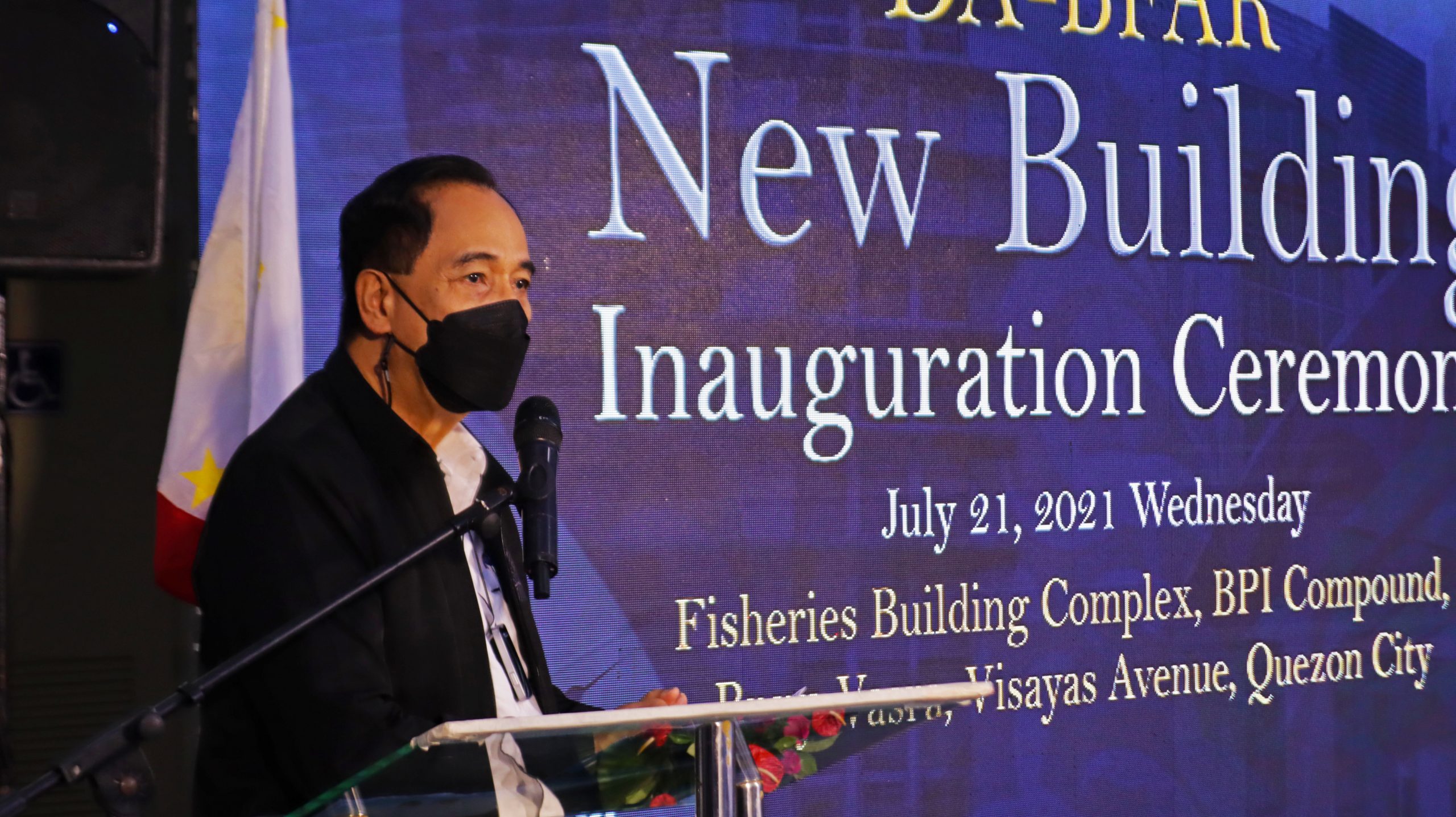
Agriculture Secretary William Dar challenged the Bureau of Fisheries and Aquatic Resources (BFAR) workforce to work harder to produce long-lasting results and increase the contribution of the fishery sector to the country’s gross domestic product (GDP).
He posed the challenge to dozens of officials and staff of BFAR, led by Director Eduardo Gongona, during the inauguration of the new Fisheries Building Complex, along Visayas Avenue, in Quezon City, on July 21, 2021. The complex houses BFAR’s main offices and the National Fisheries Research and Development Institute (NFRDI).
“I strongly urge you — the men and women of BFAR — to unleash the potentials of the country’s fishing industry, particularly the aquaculture sector, and ensure sustained bigger growth,” Secretary Dar said.
“Your new building and facilities provide you the best of environment to really work harder and harder. We know that you are all dedicated, hardworking, and you can produce results. You just have to continue to have good focus on the things that you must do, because that would bring BFAR to a higher level of growth and development,” he added.
While the fisheries sector currently contributes about 17 to 18 percent (%) to the GDP in agriculture, secretary Dar said it could further increase if relevant programs and projects are efficiently and effectively implemented to unleash the sector’s potentials.
He said BFAR should sustainably develop the aquaculture sub-sector, aimed particularly at increasing the production of bangus, tilapia and shrimps. Priority should also be given to seaweed and shellfish production.
“It’s not just about improving productivity, but see to it that supplies are abundant and properly mobilized during the lean months and closed fishing season to temper fish prices and food inflation,” said the agri chief.
On the commercial fishery sub-sector, he said government will encourage stakeholders to modernize their operations by refleeting or acquiring new fishing vessels and equipment.
“We have requested the Development Bank of the Philippines and Land Bank of the Philippines to provide commercial fishing operators a credit window that will enable them to replace old vessels and acquire new ones,” the DA chief said.
For municipal fishers and their families, he said the DA-BFAR will continue to provide them needed production, technical and marketing assistance, including additional sources of livelihood.
He also reminded concerned BFAR personnel to be vigilant against smuggling and illegal entry of fishery and marine products.
For his part, BFAR Director Gongona said their new building is only a means for them to deliver the best possible services to stakeholders, who depend on fish and fishery resources for food and livelihood.
“We commit to provide them our most effective, efficient, and best quality service,” he added, pledging that the DA-BFAR will continue to implement programs to sustainably manage, develop, and protect the country’s fishery and aquatic resources. ### (AFID)














